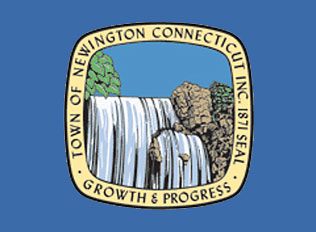

Auto Tax Restructure Included in Proposed State Budget
By MARK DIPAOLA
NEWINGTON - A controversial restructuring of the state’s automobile property tax will not pass as its own bill, but as a piece of the proposed budget. The proposal, first discussed as Senate Bill 1, will set a cap for municipal mill rates while looking to sales tax revenue to compensate any municipalities that are forced to lower their car tax. The provision also includes an increase in Payment in Lieu of Taxes (PILOT) funding.
The first mill rate cap falls into effect in 2016.
State Rep. Russ Morin expressed optimism regarding the restructuring. He represents the town of Wethersfield, which is expected to see more than $1 million in extra revenue from it. With the 2016 Mill Rate capped at 32, however, the municipality would have to come down from the 38 that currently reflects its tax on all properties.
Public officials in both Wethersfield and Newington considered resolutions against Senate Bill 1, with opposition prompted mainly by a proposal to pool automobile taxes at the state level and redistribute them to municipalities.
Democrats and Republicans in Wethersfield, while sharing concerns regarding the first version of the bill, disagreed on whether or not to pass a resolution. Mayor Paul Montinieri expressed a desire to participate in the process of shaping the bill in an effort to ensure any benefits that could come to the town as a result.
By the time a similar resolution was proposed in Newington, the language of the bill had begun to change; the sales tax pooling proposal was replaced with a cap, and the sales tax revenue was added as a way to mitigate revenue loss for municipalities that would have to lower their car tax mill rate.
At the then-proposed 29.36 Mill Rate cap, Newington was projected to see an additional $3.2 million in sales tax revenue and $176,884 in PILOT payments, while losing over $1 million in car tax revenue-all for a $2.4 million net gain, according to Town Assessor Steve Juda.
The 29.36 Mill Rate cap will be imposed in 2017, according to coverage in The New Haven Register.
Skepticism regarding the restructuring has been over the perceived possibility of the reimbursements at some point not coming. Case in point: The manufacturing tax exemption. Two years ago, Newington saw $2 million in annual reimbursements for lost revenue, but then it stopped.
There’s been concern about the sales tax revenue part of the formula as well. Concern, expressed in both towns, is that the amount of revenue intake will be inconsistent, and therefore unstable.
The bill was proposed as a way to address the issue of varying automobile taxes from municipality to municipality--a structure that has motorists paying more to own the same vehicle in a different town.








